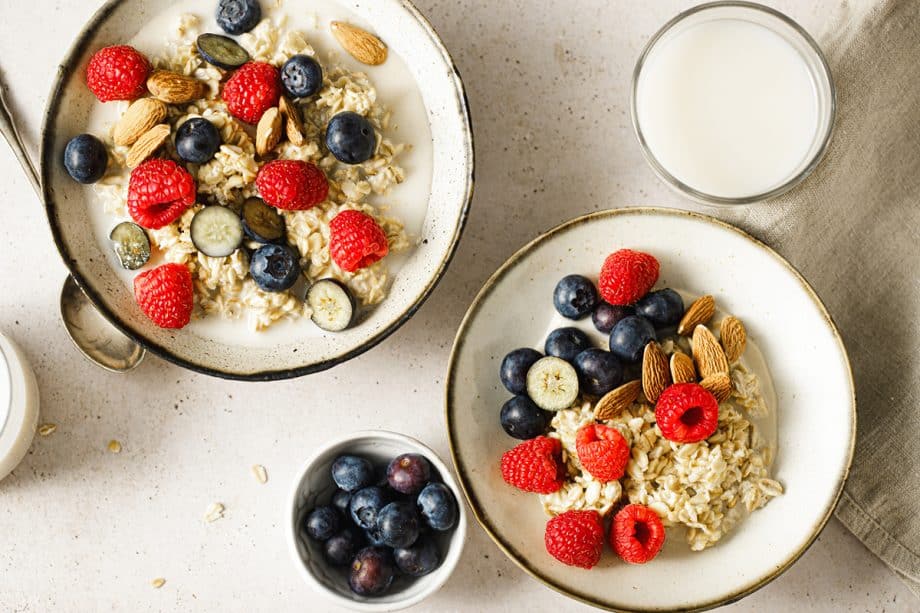Undergoing wisdom teeth removal can feel like a daunting experience, but taking proper care of your mouth afterward ensures a smoother recovery process. Understanding which foods to eat during this time is a crucial step in promoting healing, minimizing pain, and preventing complications. By choosing soft, nutrient-rich options, you can maintain a healthy diet while also protecting sensitive areas in your mouth.
We’ve crafted this guide to help you explore the best food options for your post-surgery recovery. From healing-boosting choices to meal ideas designed to keep you comfortable, we’ll make sure you know exactly what to reach for after your extraction procedure.
Easy-to-Eat Foods for Post-Surgery Recovery
After wisdom teeth removal, your mouth will be particularly sensitive. Hard or chewy foods can irritate the surgical site or lead to complications. Instead, focus on foods that are soft, easy to chew (or require no chewing at all), and rich in nutrients to support the healing process.
Smoothies and Purees
Smoothies and purees are an excellent choice for those first few days after surgery. Not only are they easy to consume, but they also pack essential nutrients into a single serving. Fill your blender with a mix of fruits, vegetables, and protein-packed ingredients like yogurt or a spoonful of nut butter. To ensure optimal comfort, avoid using straws, as the suction can disturb blood clots at the surgical site.
A simple recipe could include banana, spinach, almond milk, and frozen berries for a delicious and nutrient-dense option. Alternatively, vegetable-based pureed soups like butternut squash or tomato soup provide a savory alternative while keeping your meals smooth and gentle on your mouth.
Protein-Packed Soft Foods
Protein is vital for repairing tissue and promoting recovery. Incorporate soft, protein-rich options like scrambled eggs, cottage cheese, or Greek yogurt. These foods are gentle on sore gums while delivering the nutrients necessary for healing.
For variety, try incorporating mashed legumes, such as lentils or black beans, which can be easily pureed for a smoother texture. Adding a dollop of hummus to your meals can also boost flavor and nutrition without requiring much effort to eat.
Calming Cold Foods
Cold foods can offer much-needed relief if you’re experiencing swelling or discomfort after your surgery. Options such as sugar-free popsicles, frozen yogurt, or even a chilled Greek yogurt parfait can soothe tender gums while satisfying your sweet cravings.
These cool foods not only provide comfort but also help reduce inflammation along the way. Just remember to steer clear of anything overly sugary to avoid irritating your healing mouth.
What to Avoid After Wisdom Teeth Removal
While choosing the right foods matters, it’s equally important to avoid those that could hinder your healing or cause discomfort. Understanding what to sidestep is essential for a quicker and more comfortable recovery.
Hard or Crunchy Foods
Foods such as chips, nuts, or raw vegetables can easily get stuck in the surgical site, causing irritation or even infection. Save these for after your gums have fully healed to avoid any setbacks along your recovery process.
Spicy or Acidic Foods
Spicy salsas, heavily seasoned dishes, and acidic fruits like oranges or lemons can cause irritation in sensitive areas and potentially lead to swelling or painful sensations. Stick to mild flavors and gradually reintroduce spicier dishes as your mouth begins to heal.
Hot or Carbonated Beverages
Be cautious with hot teas, coffee, or carbonated drinks. Not only can the temperature cause discomfort, but carbonation can weaken the blood clot at the surgical site, interfering with your body’s natural healing process. Opt for cool or room-temperature drinks to stay on the safe side.
Post-Recovery Tips for a Faster Healing Process
Healing goes beyond meal selection. By incorporating gentle oral hygiene and self-care techniques, you can ensure your recovery progresses smoothly.
- Stay hydrated. Sip water throughout the day to keep your mouth clean and hydrated, but avoid using straws.
- Rinse gently. Use a saltwater solution to clean your mouth after meals, but avoid vigorous swishing.
- Rest well. Prioritize getting plenty of sleep and avoiding strenuous activities for a few days.
- Follow your dentist’s advice. Stick to any instructions provided during your appointment, including follow-ups or prescribed medications.
Listening to your body and taking small, mindful steps toward healing will make all the difference in your recovery experience.
Frequently Asked Questions About Tooth Extraction
What should I do if food gets stuck in the surgical site?
It’s common for small bits of food to get trapped during recovery. If this happens, resist the urge to poke around the area with your tongue or any objects, as this could disrupt your healing. Instead, rinse your mouth gently with saltwater. If discomfort persists, reach out to your dentist for guidance.
How long do I need to follow a soft-food diet?
Most patients find they need to stick to a soft-food diet for about one to two weeks after surgery. However, healing times can vary depending on the complexity of the procedure and your body’s natural recovery process. Follow your dentist’s instructions to know when it’s safe to reintroduce regular foods.
At MD Smiles, our compassionate team is committed to helping you achieve the healthiest, happiest smile possible. From your initial appointment to post-surgery care, we’re here to support your dental health every step of the way. If you have any further questions or concerns, don’t hesitate to contact us today.

